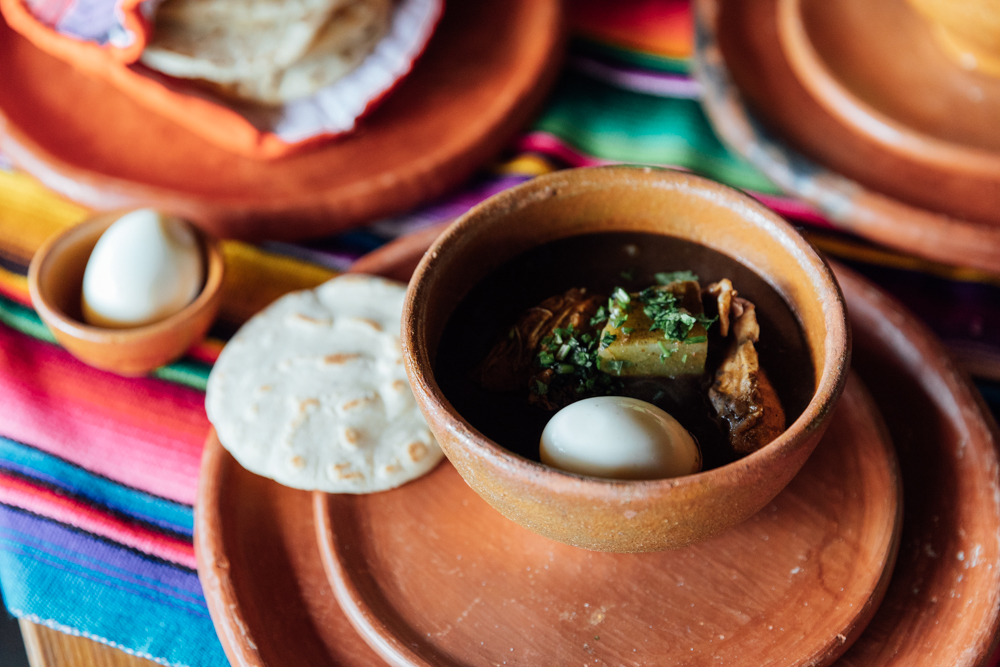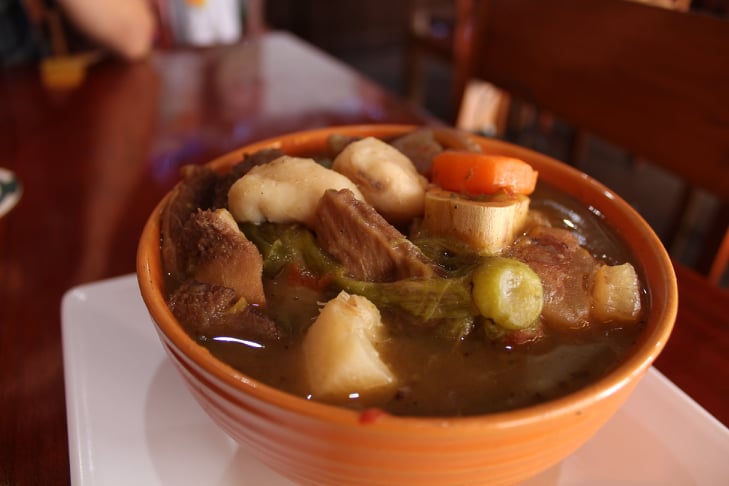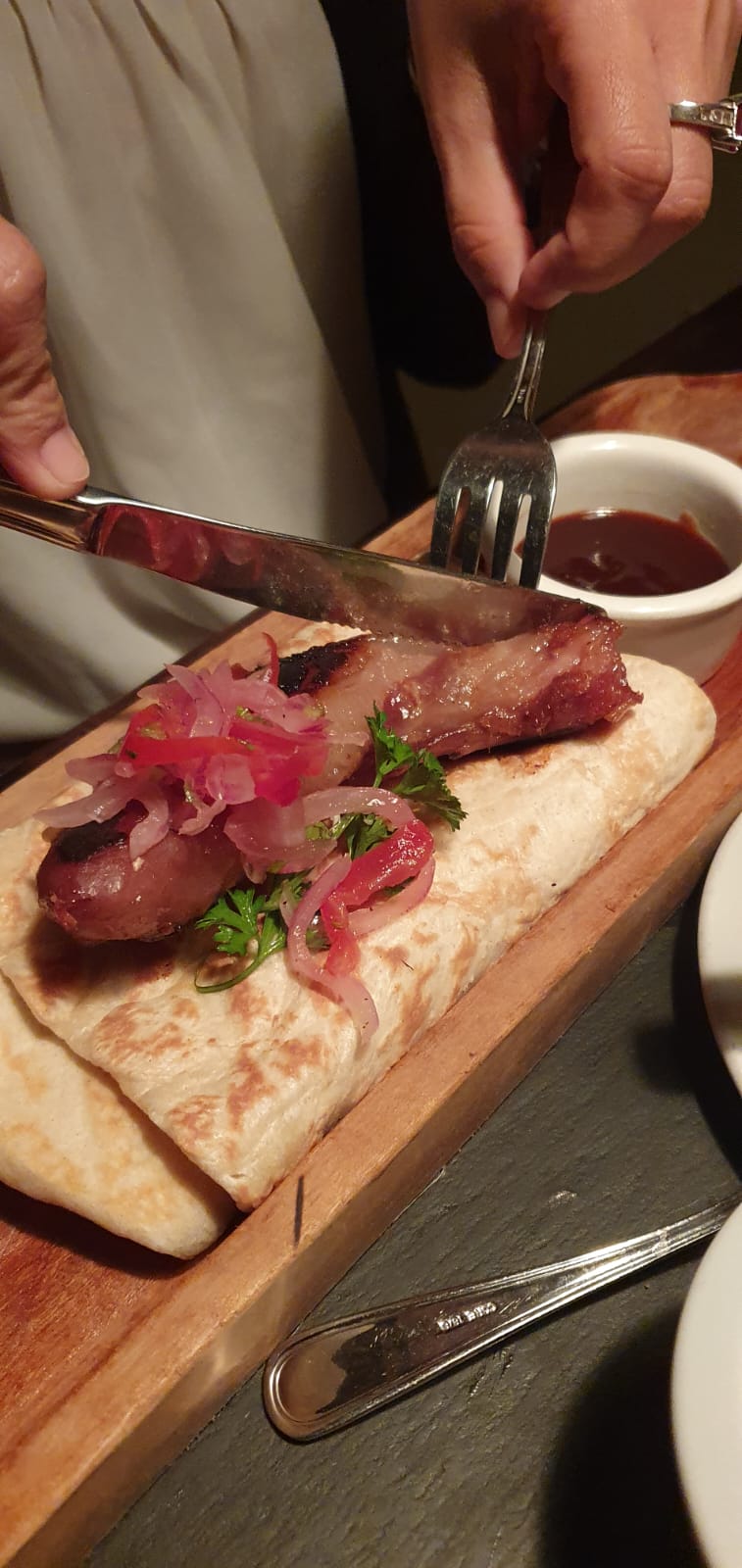
8 Unusual and Exotic Foods enjoyed in Belize
Belize’s cuisine has been crafted over the centuries producing a menu guaranteed to ignite tastebuds with its bold flavors. Each region, brings its own creative and traditional flair to the table. While rice and beans may be the national dish, there are plenty of other foods to try for those eager to experience something new and quite different. For the visiting foodie and adventurer, here is a bucket-list of unusual and exotic foods enjoyed in Belize.
- Cow Foot Soup. Yes, the star of the dish really is cows’ feet (hooves not included). Slowly cooked to a juicy tenderness, the cow foot is mixed with a variety of vegetables including cassava, coco, okra pepper, and seasoning. The end result is a savory, hearty and comforting soup. Cow foot soup is typically complemented by a side of coconut white rice or fresh corn tortillas and your choice of a whole habanero or pepper sauce.
- Pigtail. Salt-brined pigtail is the go-to for flavoring everyday favorites such as stewed beans. This delicacy spans decades if not centuries of culinary tradition in Belize with pigtail added to several dishes. Pigtail in tomato sauce is the centerpiece of Belizean Boil-up along with boiled sweet potato, cassava, cocoa, plantain, and egg, all smothered in the tangy sauce. Pigtail can also be enjoyed smoked or in split pea soup.
- Chimole. This tasty soup is also known as “Black Dinner” or “Black Soup” due to its dark color. Rooted in Maya and Mestizo cultures, chimole is enjoyed by all in Belize. The unique color and ingredient is the black recado seasoning made from burnt corn tortillas. A large bowl of chimole is traditionally enjoyed with corn tortillas or may also be served with coconut white rice.
- Bukut. Found in a long, hard-shell pod hanging from the Cassia Grandis tree, you’ll either really enjoy or have an aversion to the bukut. You won’t forget this fruit’s pungent aroma that locals often compare to smelly socks or feet and have nicknamed as “stinking toe bukut”. Upon breaking the pod, a sticky pulp-covered seed with an almost molasses-like flavor is revealed. Hold your nose and enjoy this tasty reward said to have a number of medicinal properties.
- Gibnut. If you are in Belize’s central coast, scan the road side menus for seasonal game. The Paca or gibnut gained international fame, being dubbed the “Royal Rat”, after it was served to Queen Elizabeth II on a visit to Belize. Fit for a queen, the taste has often been compared to rabbit. Stewed game is often paired with rice and beans for a delicious chicken substitute. Other game meats to try are the peccary (wild pig) and iguana when in season.
- Seaweed Shake. This creamy and nutrient-rich concoction is similar in appearance to eggnog and Belizean rumpopo. A seaweed shake typically includes evaporated milk, condensed milk, cinnamon, vanilla and nutmeg. Seaweed shakes are sold in stores in a variety of decadent flavors such as peanut, coffee, and vanilla. It can also be enjoyed freshly made on the coast, such as in Placencia.
- Breadfruit. Green on the outside and spongy on the inside, this foot-ball sized fruit is similar in texture and flavor to a potato. Breadfruit is found only in tropical regions, making it a must-try when in season in Belize. Similar to potatoes, breadfruit is served fried (chips), steamed, or baked. When cooked it gives off the aroma of freshly baked bread, hence the name.
- Chicken Feet. No meat is wasted in Belizean cooking, even when it comes to an everyday favorite. The neck, gizzard and the feet of the chicken are considered succulent treats by some. While locals tend to reserve these for themselves, don’t be surprised if you come across chicken feet in your tamale or chicken soup. The next time you order rice and beans make a request to add the chicken feet, gizzard or neck to your plate.
Sampling several or all of these unusual and exotic foods may even qualify you for a Belizean passport.
Images courtesy Lauren Margesson and the Belize Tourism Board




